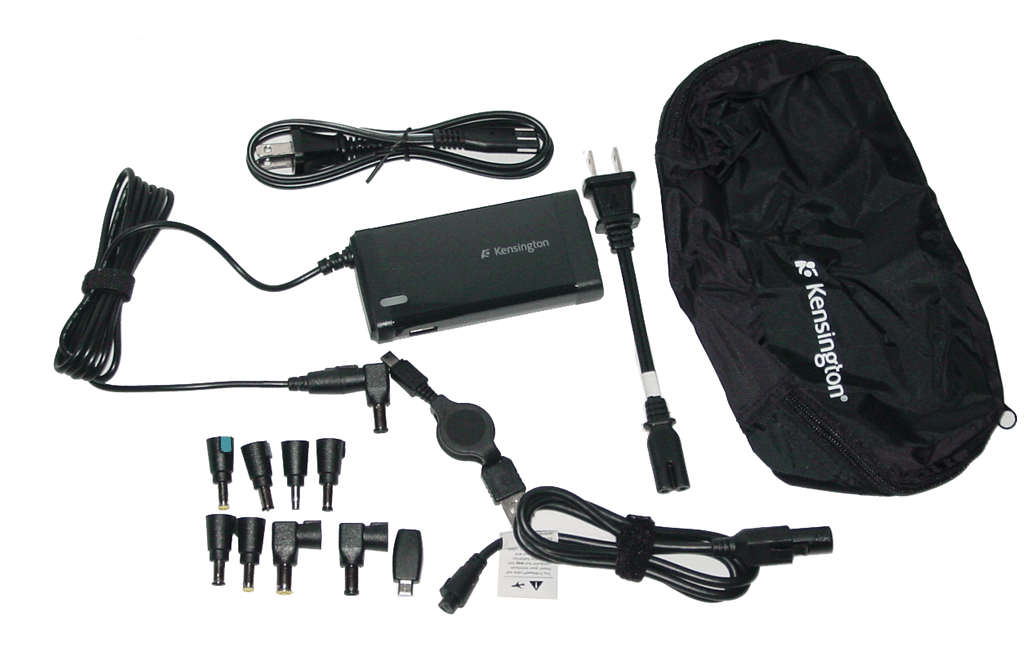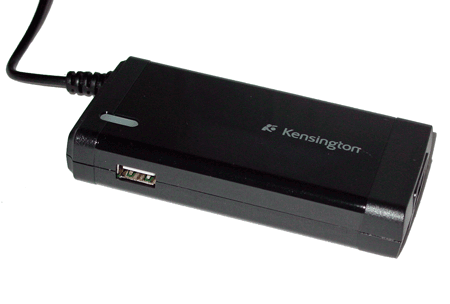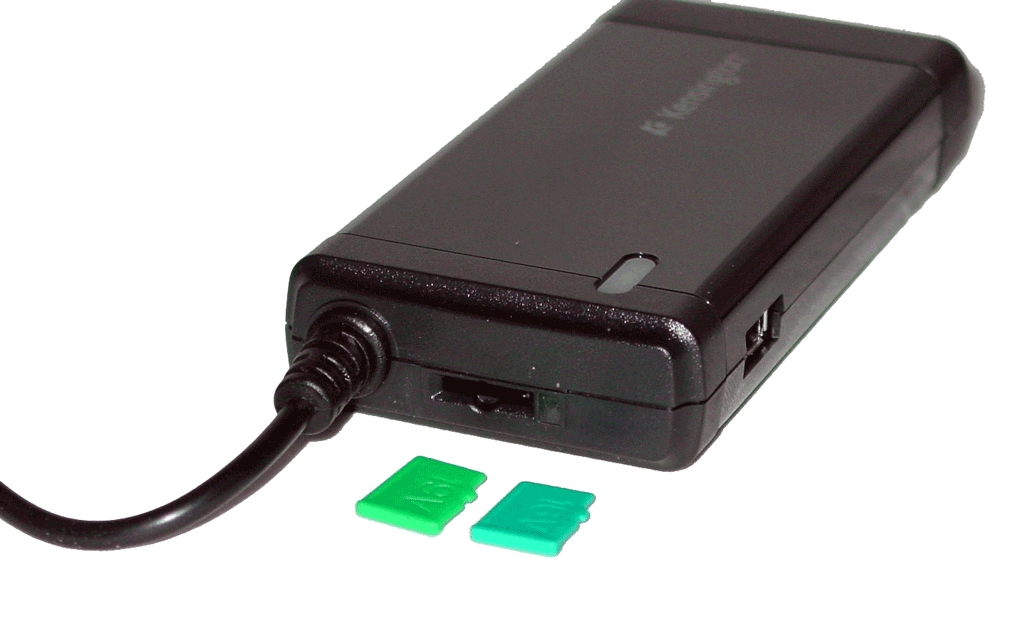Universal Laptop Power Adapters For The Air, Road, And Wall
Kensington Wall/Air Ultra Compact Notebook Adapter (K38067US)
Kensington is the only company that advertises a "travel adapter" without automotive support. Its previous K33197US was the last Auto/AC/Air combo adapter. Now, the only way to get something that works in the car is with an EmPower-to-cigarette adapter (like the one that comes with the Duracell charger).
Otherwise, if you stand by Kensington's products, you're compelled to buy a power inverter instead (and we already know that's not an ideal solution). The EmPower-to-cigarette outlet adapter is quite hard to come by. Frankly, Kensington should just throw that adapter into the mix, as it already includes it with the K38037US power inverter.
While it's true that this charger is the cheapest of the bunch (~$88), it has a few limitations. The USB port is oddly placed off to the side, which complicates cable management if you prefer to keep the adapter in your bag and spool the power cord. Additionally, this adapter is the only one we're testing with limited voltage output. Instead of determining voltage range based on sense resistors inside the connector's tip, it employs a pin-out system.
There are two SIM-like plastic cards that come bundled. In order to achieve a specific voltage, you need to plug one card into the spring-loaded receptor slot. The 16 V card provides a voltage output between 14-17 V, while the 19 V card outputs between 17-21 V. It seems like Kensington is tiering the voltage output as an additional safety mechanism.
At the same time, you could unintentionally create a problem by using the wrong card, as you'd either get too much or too little voltage. In the case of the former, you could cause real damage to your notebook.
Get Tom's Hardware's best news and in-depth reviews, straight to your inbox.
Current page: Kensington Wall/Air Ultra Compact Notebook Adapter (K38067US)
Prev Page Targus Premium Laptop Charger (APM69US) Next Page Compatibility: Will It Work?-
shreeharsha I actually thought they are going to release a standard for all the Laptop Power Adapters, one power adapter for all the notebooks. (only might be different wattages)Reply -
randomstar I can not honestly tell you the number of friends, customers, and others that bought a non-dell power adapter for a dell unit, and found out that it will run the unit, with reduced performance, but will not charge. and paid lots of money. I keep a collection of actual dell power supplies 65w, 90w, 120w ,just to help out when that happens. funny thing , if you shop around you can get the real ones for less than the kingston, etc "universal"!Reply -
JohnnyLucky It's a shame that there is no single International standard to go by. It would make things a lot simpler.Reply -
cadder And even worse than that- between my daughter and I we've owned 3 Dell laptops, and each one uses a different power adapter and plug.Reply -
soccerdocks cadderAnd even worse than that- between my daughter and I we've owned 3 Dell laptops, and each one uses a different power adapter and plug.Reply
That seems unusual. In my house we have 3 different laptops spanning 6 year purchase dates and they all have the exact same plug. Two of the laptops are Latitudes and the other is a Studio XPS. The only difference is that the Studio XPS came with a 130 watt adapter as opposed to 65 watt adapters for the Latitudes. So no gaming with that machine while plugged into the 65 watt adapters. -
legacy7955 shreeharshaI actually thought they are going to release a standard for all the Laptop Power Adapters, one power adapter for all the notebooks. (only might be different wattages)Reply
Actually this sort of standard DOES exist in Europe for smart phones and cell phones, I'm not sure if it includes laptop or netbooks but it might. I'll have to search around.
It seems the bottom line today is buy the OEM adapters if you want to play it safe. -
mayankleoboy1 thats another lame article consecutively.Reply
come on Toms, get the BD benchies out already. -
CaedenV This is exactly why I don't understand dropping serious money into a laptop. Have a good desktop, and a cheap laptop/netbook/smartphone/tablet for your portable needs. Batteries only last 2-4 years with consistent use, so after 2-3 years you need a $150 battery, plus if your power brick is worn out then it is another $120 for that...Reply
So that $800 laptop then requires another $270 to run after 3 years? And this is assuming you don't drop the thing, or break it through normal wear and tear. And laptops do not age as gracefully as desktops because they are generally crap hardware to begin with. Much better to stick with a $300 laptop, and a decent desktop. The desktop will keep up with the times longer and will have less maintenance, while the laptop can be swapped out when need be. -
simontay1984 My Toshiba Satellit Pro M30 is over 5 years old now and it still works fine. HDD and RAM has been upgraded. The battery went flat a long time ago and won't recharge.Reply
Instead of buying a new Lithium-Ion batt (that would only last about another 2 years anyway), I just use a 12V 7.2Ah Lead Acid connected to the PSU input when I don't have access to a mains supply for an extended period (e.g. on long train journey).
It works cos the PSU output voltage is 15V so 12V is close enough.


